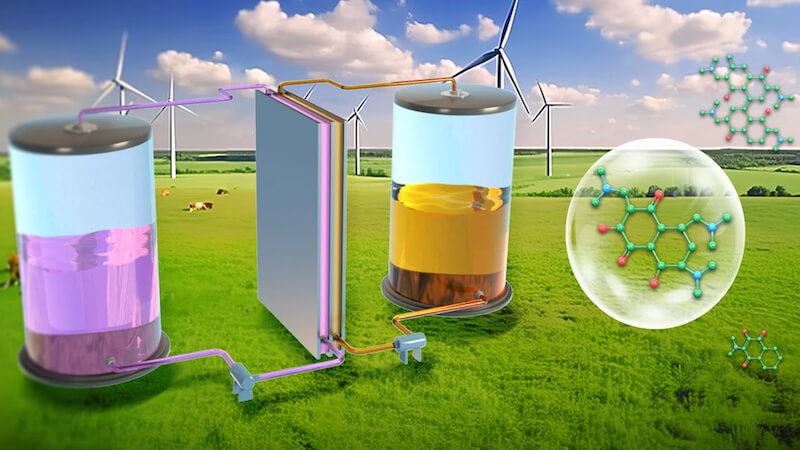
Researchers at the Dalian Institute have developed air-stable organic molecules that can apparently significantly increase the lifespan of liquid batteries. The background.
Researchers at the Dalian Institute of Chemical Physics (DICP) have developed novel air-stable organic molecules. These are said to have the potential to significantly increase the service life of batteries. The so-called naphthalene derivatives would significantly improve the air stability and cycle performance of organic redox-active molecules (ORAMs) in aqueous organic flow batteries (AOFBs).
Among other things, this leads to an extended battery life. The development could enable sustainable energy storage in a cost-effective manner, because ORAMs are readily available and can be synthesized using simple chemical and electrochemical methods.
Air-stable molecules are intended to increase the service life of liquid batteries
However, a major problem with ORAMs is their instability when in contact with air. The result: an irreversible loss of capacity, which negatively affects the lifespan of batteries. However, by using the new naphthalene derivatives with hydrophilic alkylamine frameworks, the researchers were able to solve the problem.
These frameworks protect against unwanted side reactions and at the same time improve solubility in aqueous electrolytes. In tests, an organic flow battery with these naphthalene derivatives showed stable performance even after more than 850 charging cycles.
Even with a continuous air flow, the battery remained stable for over 600 cycles. The results underline the exceptional air stability of the novel molecules.
Scaling for future applications still open
The researchers were able to expand the production of the naphthalene derivatives to a kilogram scale (5 kilograms per batch) and tested them in a pilot battery system. The battery achieved a relatively high cycle stability of over 270 charging cycles, during which the capacity per cycle decreased by only 0.05 percent.
The research results could pave the way for the development of long-lasting, air-stable energy storage systems. As part of the energy transition, these play an important role, particularly in sustainable energy supply.
Also interesting:
Source: https://www.basicthinking.de/blog/2024/09/18/luft-stabile-organische-molekuele/


